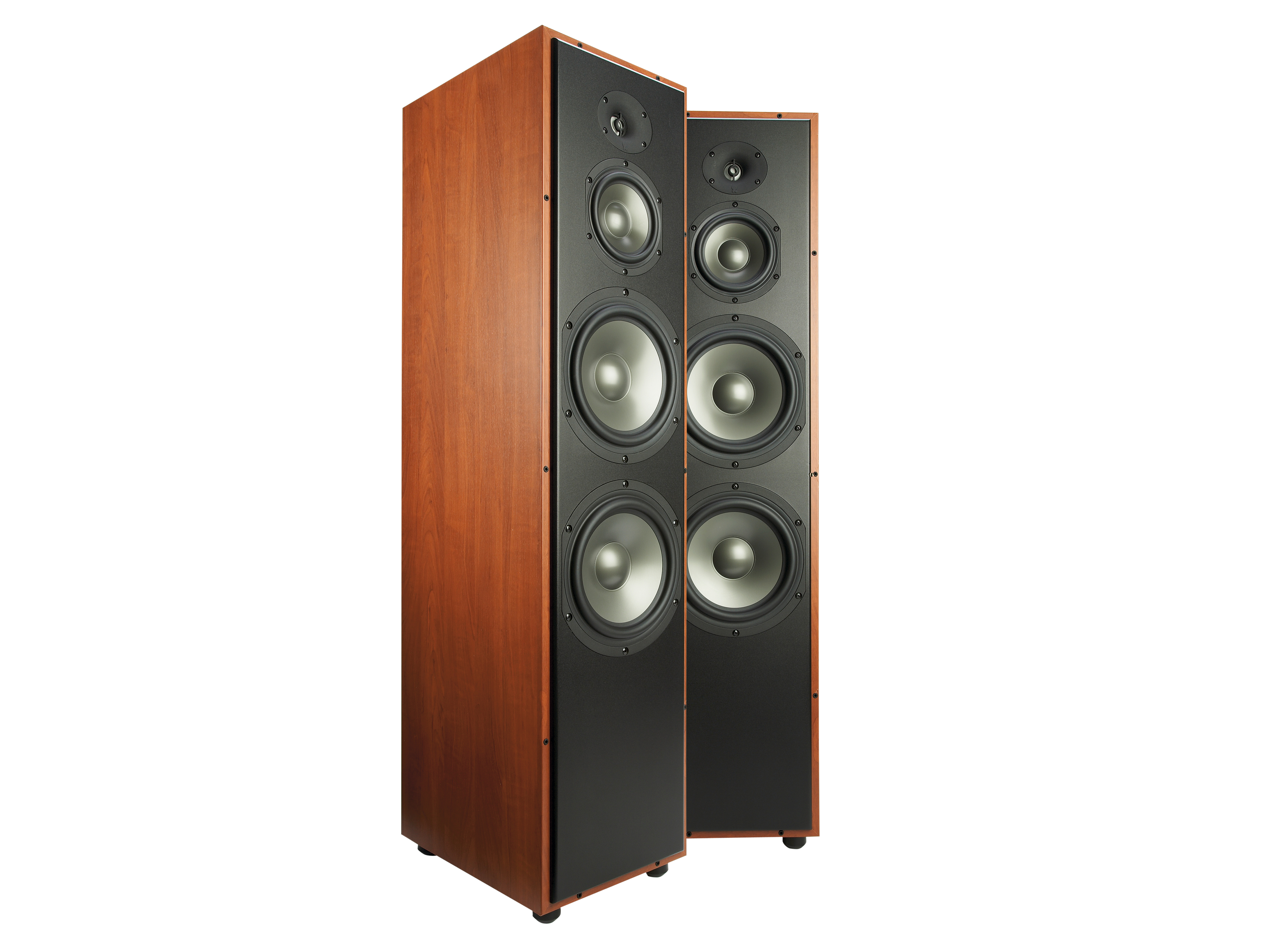TechRadar Verdict
Massive multi-driver floorstander; not pretty, but has great headroom, bass weight and impressive neutrality
Pros
- +
Fine headroom and freedom from strain
Impressive neutrality
Ample low bass
Cons
- -
Looks a bit overkill
Why you can trust TechRadar
Revel is a US loudspeaker specialist that started out in the mid-1990s. It's part of the giant Harman conglomerate, alongside the rather better-known and longer-established JBL brand, giving it access to Harman's impressive research facility in Northridge, California, even though the company itself is based on the East Coast.
Indeed, despite some obvious differences, there's a clear family resemblance between this Concerta F12 and the JBL Studio L880.
Revel's budget Concerta range is essentially a multichannel package, but it also involves several options, and includes two stereo pairs - a compact M12 standmount and this large £900-per-pair F12 floorstander.
It's not exactly what one would call a pretty loudspeaker, as it's far larger than all the other speakers gathered for this group test, but with a generous and hefty well-braced enclosure and four drive units giving a total weight of 28.4kg, it's clearly impressive material value for money.
The F12 is a full three-way design, with two good-sized 150mm cone, cast-frame bass drivers operating in the main enclosure volume and port-loaded at the rear.
A separately enclosed 135mm cast-frame driver with a 95mm cone handles midrange duties before handing over to a 25mm dome tweeter loaded by a short horn flare and protected by a phase compensator.
All these drivers use what Revel calls Organic Ceramic Composite (OCC) diaphragm material: it's actually deep-anodised aluminium, which creates a stiffening oxide surface skin - a technique similar to Harman stablemate Infinity's CMMD, and about as inorganic as it's possible to be.
All are neatly mounted on a black-painted front panel, while the rest of the speaker is covered in a quite convincing vinyl wood print, in cherry, maple or black, though the picture-frame front edge is punctuated by unsightly grille-mounting lugs if the grille isn't used.
The speaker comes fitted with substantial rubber feet, into which carpet-penetrating spikes could be fitted if desired, although tightening any locknuts might prove difficult. High-slope crossover filters are used, at 575Hz and 3kHz, fed from two pairs of terminals.
Given the ingredients, it's no great surprise to find that this speaker has more than ample bass output and should be kept well clear of walls. That said, there's still a tendency towards bass excess even in our relatively large listening room, so small rooms are probably not ideal.
Happily, the bass, though strong, is pretty well controlled, apart from a mild thickening of textures, so the overall effect is of a genuinely authoritative heavyweight, able to supply plenty of weight and scale to any material - movie fans will love it!
This speaker has two other notable strengths. It's exceptionally even-handed, and no part of the spectrum seems unduly exaggerated. The presence might be a little too strong for some tastes, and brass can therefore sound a little fierce, but timbre and tonality are generally impressively neutral.
It also has the sort of headroom and freedom from strain that only large loudspeakers can really create: even when playing quite loudly, it remains essentially unflappable and seems to have plenty in reserve.
Although the F12 does the big things very well, it's rather less convincing when it comes to the delicate subtleties, which somehow seem a little smoothed over, leaving vocal expression a little muted. And for all its neutrality and authority, the soundstage does lack transparency, depth and air.
Tech.co.uk was the former name of TechRadar.com. Its staff were at the forefront of the digital publishing revolution, and spearheaded the move to bring consumer technology journalism to its natural home – online. Many of the current TechRadar staff started life a Tech.co.uk staff writer, covering everything from the emerging smartphone market to the evolving market of personal computers. Think of it as the building blocks of the TechRadar you love today.
